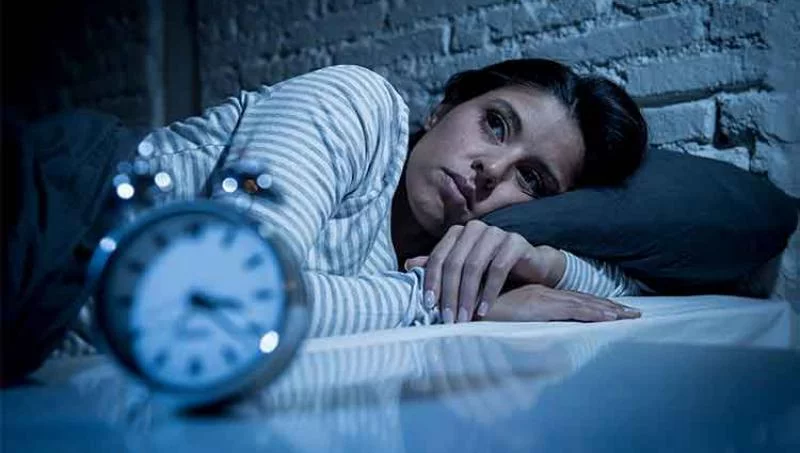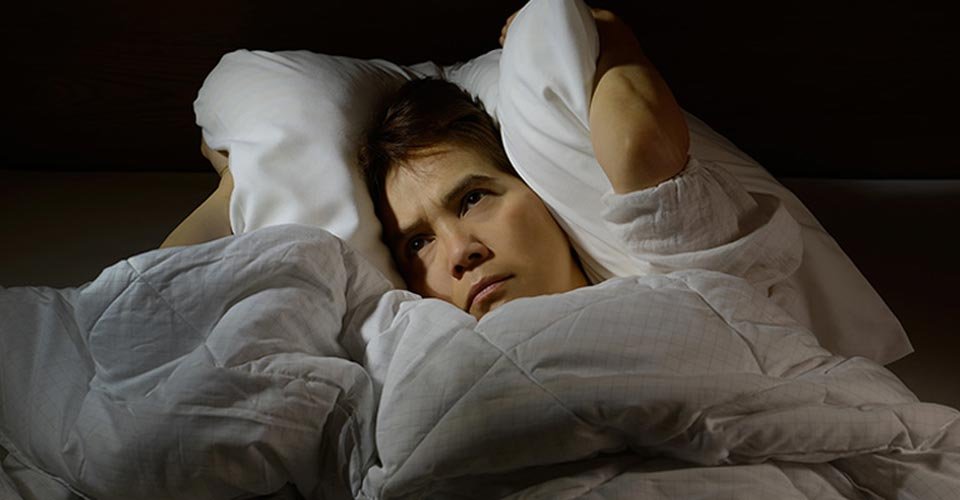Sleep, the beautiful surrender to the night, is turning elusive for an alarming number of people. Not only the elderly but those in their lively 40s are increasingly finding themselves locked in a battle with sleeplessness. A recent survey titled “Sleep Disorders – Emerging Health Issues in Old Age” conducted by the Agewell Foundation in May 2023 across 20 states and Union Territories, exposes this growing concern.
Shockingly, over half – 52% of the respondents from a wide age bracket, both middle-aged and older, confessed to wrestling with the quest for deep, restful sleep. This isn’t merely a matter of rest – it’s a public health issue that’s quietly but steadily growing.
What’s adding fuel to this fire of sleeplessness? Himanshu Rath, the Agewell Foundation founder, shares a concern that may raise eyebrows. A staggering 90% of people are turning to medication to battle various lifestyle health issues, including high blood pressure. The problem is, many of these are far from sleep-friendly. Some hypertension medications, for instance, may adversely impact the quality of your rest, while others might leave you caught in the grips of daytime drowsiness.
Moreover, our social circumstances cast a long shadow on our sleep patterns. Loneliness, often a by-product of sparse social interactions, can heighten anxiety, leading to a fitful, poor quality of sleep.
In light of these revelations, we must ponder – what are the remedies? Can we retune our bodies to the rhythm of restful sleep? You’re in luck, for ancient wisdom may hold the key. Walk with us as we explore the Ayurvedic path to reclaiming your nights and revitalizing your life.


What is Insomnia?
Insomnia is a symptomatic sleep disorder characterized by prolonged difficulties in falling asleep, staying asleep, or getting restful sleep. The crisis looms larger than it appears, affecting not just the quality of life but also contributing to a multitude of health issues like obesity, heart disease, diabetes, and impacting mental health.
Causes of Insomnia
The causes of insomnia are multifaceted, often intertwining both physiological and psychological factors:
Stress and Anxiety -
High levels of stress, worry, and anxiety, whether due to personal or professional issues, can significantly disrupt sleep patterns.
Depression -
Insomnia can be a symptom of clinical depression. People with depression may experience difficulty in falling asleep or awaken too early.
Medical Conditions -
Chronic illnesses such as arthritis, asthma, sleep apnea, and neurological conditions like Parkinson’s disease can lead to insomnia.
Medication Side Effects -
Certain medications used for treating high blood pressure, depression, asthma, and other health conditions can interfere with sleep.
Lifestyle Factors -
Irregular sleep schedules, napping late in the day, consuming caffeine or alcohol, or even using electronic devices before bed can induce insomnia.
Hormonal Changes -
Hormonal shifts due to menstrual cycles as well as menopause may also affect sleep.
Ageing -
Insomnia becomes more common with age due to changes in sleep patterns, health issues or medications.
Ayurvedic Remedies for Insomnia
Let’s dive into some Ayurvedic methods that are known to enhance sleep quality:
Warm Milk with Nutmeg and Honey -
A warm glass of milk, sweetened with honey and a pinch of nutmeg, can do wonders. This simple yet effective drink aids in soothing your nervous system, thus helping you unwind and fall asleep easier.
Chamomile Tea -
This soothing tea is a well-known sleep aid. Its calming properties help you relax, clearing your mind of stress and paving the way for a restful night.
Herbal Oils -
Massaging your scalp and soles of your feet with sesame or brahmi oil before bedtime can stimulate sleep-inducing pressure points. These oils that contains natural compounds, can help you improve your sleep quality.
Yoga and Meditation -
Practices such as Yoga Nidra, a form of guided meditation, and certain yoga postures can prepare your body and mind for sleep. The deep relaxation achieved helps in reducing stress and encourages deep, restful sleep.
Ashwagandha -
A renowned Ayurvedic herb, Ashwagandha is often used to manage stress. It stabilizes the body’s response to stress, which in turn, aids in improved sleep.
Ayurvedic Diet -
Ayurveda emphasizes having a balanced diet, rich in fruits, vegetables, nuts, and whole grains, which nourishes the body and promotes better sleep. Ayurveda also suggests avoiding caffeine along with spicy food close to bedtime because it may disturb sleep patterns.
Ayurvedic Therapies for Insomnia
Ayurvedic therapies can be incredibly beneficial in addressing insomnia. Here are a few specialized treatments that can be particularly effective:
This is a five-step detoxification treatment that includes Vamana (therapeutic vomiting), Virechana (purging), Vasti (enema), Nasya (nasal drops), and Rakta Mokshana (blood purification). This process cleanses the body, rejuvenating it, and restoring balance. Panchakarma’s overall effect of detoxification and relaxation can help improve sleep.
This therapy involves an enema using medicated oil or a herbal concoction. It’s used to alleviate imbalance in the Vata dosha, one of the primary life forces in Ayurveda. Given that the imbalance of Vata dosha is often associated with insomnia, Vasti can be an effective treatment.
Shirodhara is a form of Ayurveda therapy that involves gently pouring liquids over the forehead. This therapy is widely used to treat sleep problems as it has a calming effect on the nervous system, thereby promoting deep sleep.
Shiroabhyanga
This is a head massage using warm herbal oils. The massage focuses on the areas around the head, neck, and shoulder where stress accumulates. It improves blood circulation to the brain, sooth the nervous system, and promotes better sleep.
Padabhyanga
Often ignored, our feet are a complicated network of nerve endings and pressure points. Padabhyanga, or foot massage, relaxes these points, reducing stress and anxiety and thereby improving sleep quality.
This is a full-body oil massage that rejuvenates the body, improves blood circulation, and helps to balance the doshas. This therapy not only relaxes the body but also promotes better sleep.
Potential Challenges and Limitations
While Ayurvedic remedies and therapies offer a host of benefits for combating insomnia, it’s essential to understand that every coin has two sides. As promising as Ayurveda is, there are certain challenges and limitations associated with these treatments.
Time and Commitment
Ayurveda is not about quick fixes. It often requires lifestyle changes and a commitment to a routine over an extended period, which can be challenging in our fast-paced modern lives.
Potential Side Effects
While generally considered safe, some Ayurvedic treatments or herbs may cause side effects or interact with other medications. It’s essential to consult with a certified healthcare provider before commencing any new treatment regimen, especially if you are suffering from a pre-existing medical condition or are already on medication.
Personalized Treatment
Ayurveda emphasizes personalized treatment based on individual body constitution or dosha (Vata, Pitta, and Kapha). What works for one person may not work for another, which could lead to frustration if you don’t see immediate results.
Wrapping Up
As our exploration of Ayurveda’s wisdom draws to a close, it becomes apparent that sleep – this seemingly simple act of nature – is, in fact, a complex symphony of factors dancing in harmony. Insomnia, then, is not a song out of tune, but rather a call to rearrange our lifestyle, a sign to retune our lives to the rhythm of nature and well-being.
In a world that moves faster with each passing day, the time-honoured principles of Ayurveda may appear slow and challenging to adapt to. But it’s this slowing down that allows us to reconnect with ourselves, our health, and our sleep. It invites us to redefine what it means to live fully – not in the frenetic pace of the day but in the restorative quiet of the night.
So, if you find yourself tossing and turning, wrestling with the shadows of sleepless nights, remember – the answers may not lie in the realm of glowing screens, ticking clocks, or popping pills. They may well be nestled in the gentle wisdom of Ayurveda, waiting to be discovered.

No Responses